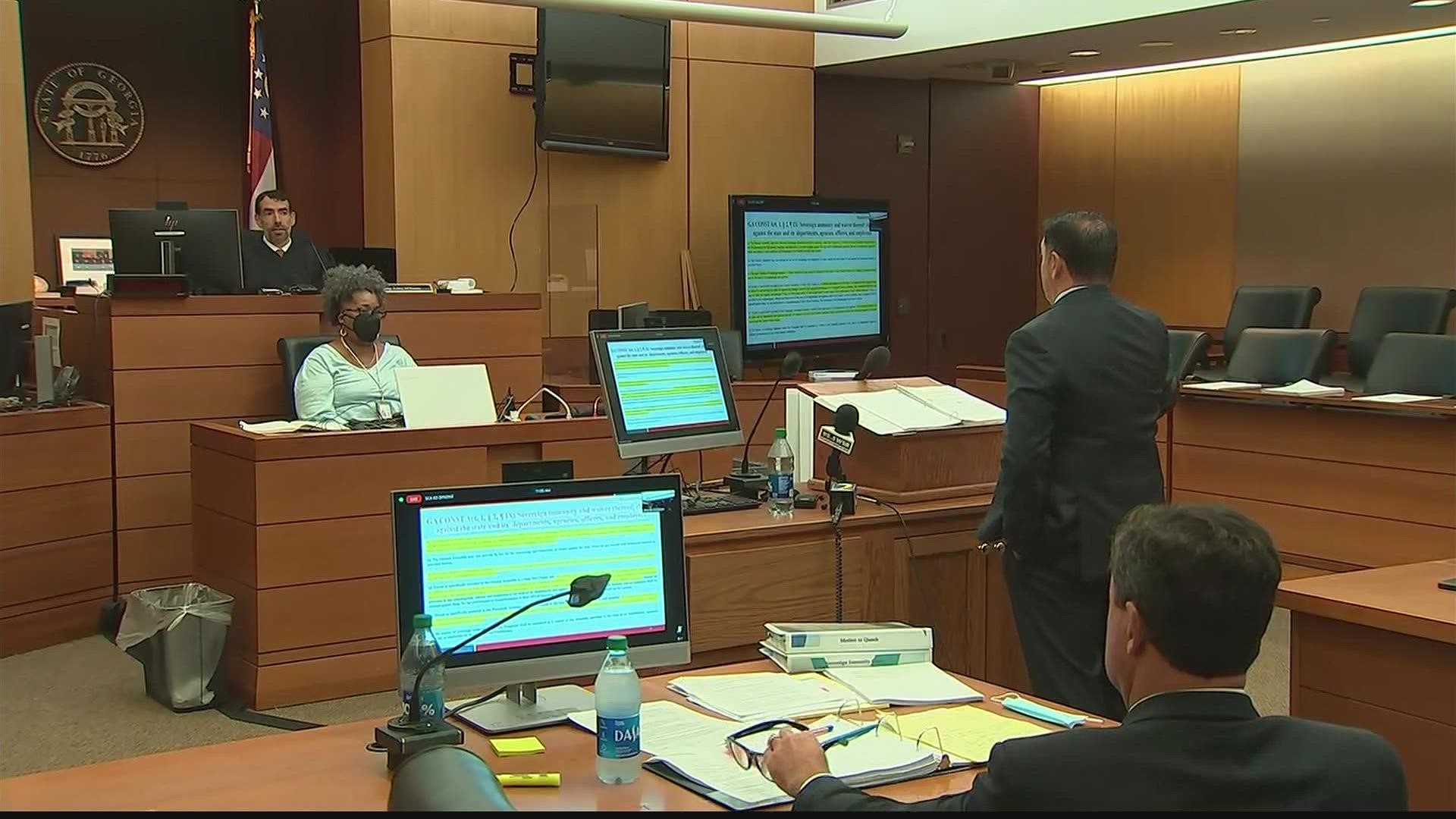ATLANTA — The judge presiding over a special grand jury that's investigating possible illegal attempts to influence the 2020 election in Georgia heard arguments on Thursday as he considers whether Gov. Brian Kemp has to testify, and if so, when.
Fulton County Superior Court Judge Robert McBurney did not immediately issue a ruling, and it wasn't clear when he might do so.
The back-and-forth between Kemp's lawyers and Fulton County District Attorney Fani Willis' team of prosecutors has grown increasingly heated in recent weeks, with Kemp's team accusing the district attorney of pursuing a “politically motivated” probe, something she has vehemently denied. The Republican governor, who is running for reelection in the fall, was issued a subpoena but is seeking to avoid speaking to a special grand jury looking into whether former President Donald Trump and his allies broke any laws as they tried to overturn Trump’s narrow election loss to Democrat Joe Biden.
Prosecutors want to ask Kemp about a January 2021 phone call between Trump and Georgia Secretary of State Brad Raffensperger during which the then-president suggested the state’s top election official could “find” the votes needed to overturn his loss. They also want to ask about a December 2020 call from Trump to Kemp asking the governor to order a special legislative session to secure the state's electoral votes for him instead of Biden.
Lawyers for Kemp argued that he is protected from having to testify by the principle of sovereign immunity, which says the state can’t be sued without its consent. Prosecutors argued that’s not applicable because Kemp is not being sued but instead is being called as a witness to provide facts for an investigation.
Kemp’s lawyers also raised concerns about executive privilege and attorney-client privilege. Willis’ team said executive privilege doesn’t apply, and that they would avoid topics covered by attorney-client privilege. McBurney said that, if he decides sovereign immunity doesn’t apply and refuses to quash the subpoena, he will meet with the two sides to discuss how to move forward and when the governor would have to testify.
Kemp attorney Brian McEvoy argued that, if the governor does have to testify, it shouldn’t happen until after the general election. Kemp faces a rematch with Democrat Stacey Abrams in November in one of the most high-profile and closely watched gubernatorial contests in the country.
“Your Honor is well aware of where we are, what state we’re in, what race we’re facing, and the governor ought not have to suffer political consequences for invoking a legal right,” McEvoy said.
Prosecutor Donald Wakeford noted that Willis waited until after contentious primary elections in late May to begin calling witnesses before the special grand jury for that very reason. The governor could have quietly honored a subpoena to appear last week without any media attention, Wakeford argued, but instead, his attorneys filed the motion to quash the day before that scheduled appearance, thrusting the issue into the public eye.
“To continually insist that this is a situation engineered by the district attorney’s office to the intentional detriment of the governor is just not true,” Wakeford said.
Raffensperger and some other state officials have already appeared before the special grand jury, but Kemp is one of a number of potential witnesses fighting orders to testify.
In other developments Thursday in the Fulton County investigation, lawyer Kenneth Chesebro asked McBurney to rule that he doesn’t have to appear before the special grand jury after a judge in New York last month ordered him to travel to Atlanta to testify Aug. 30. Willis said in a court filing that Chesebro worked with the Trump campaign to organize a slate of 16 Republican fake electors who declared themselves the state’s “duly elected and qualified” electors even though Biden had won the state, and a slate of Democratic electors was certified.
Willis earlier this summer notified those fake electors that they may face criminal charges.

